Uncategorized
-
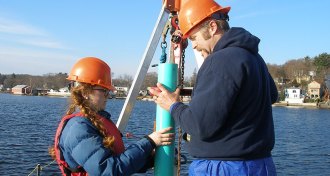 Earth
EarthPowerful New England quake recorded in pond mud
The newfound sediment signature of the 1755 Cape Ann earthquake could be used to trace other prehistoric temblors.
-
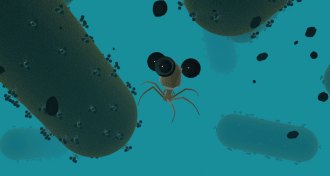 Life
Life‘Nanobot’ viruses tag and round up bacteria in food and water
Viruses called phages evolved to hunt bacteria. With magnetic nanoparticles and genetic engineering, they become nanobots that work for us.
-
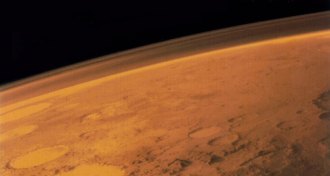 Planetary Science
Planetary ScienceWater may have killed Mars’ magnetic field
Extra hydrogen near the Red Planet’s iron core could have shut down convection.
-
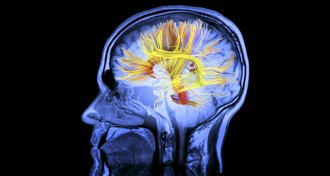 Neuroscience
NeuroscienceWhen tickling the brain to stimulate memory, location matters
Conflicting results regarding the benefits of brain stimulation may be explained by the precise location of electrodes.
-
 Anthropology
AnthropologyModern chimp brains share similarities with ancient hominids
MRIs suggest certain brain folding patterns don’t mark ancient humanlike neural advances after all, raising questions about hominid brain evolution.
By Bruce Bower -
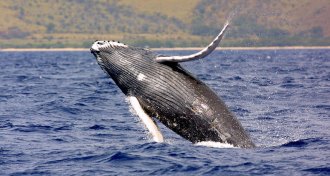 Animals
AnimalsHumpback whale bumps have marine biologists stumped
Christine Gabriele is taking tissue samples from humpback whales in Hawaii to determine why more and more have nodular dermatitis.
-
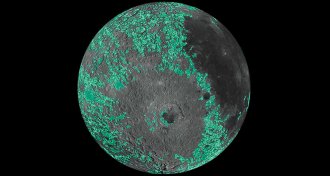 Planetary Science
Planetary ScienceThis spinning moon shows where debris from giant impacts fell
A new map shows that light-colored lunar plains point back to huge impact basins, raising questions about the age and history of the moon.
-
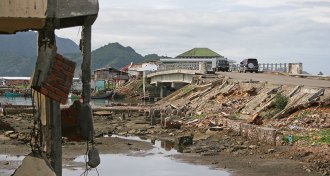 Science & Society
Science & SocietyHow past disasters can help us prepare for the future
In The Big Ones, seismologist Lucy Jones examines the science behind some of the most catastrophic natural disasters in human history.
By Kyle Plantz -
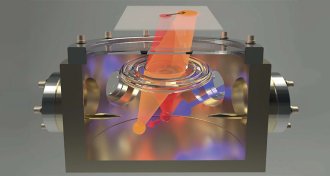 Physics
PhysicsA single atom can gauge teensy electromagnetic forces
The force of scattering particles of light was measured in zeptonewtons, a billionth of a trillionth of a newton.
-
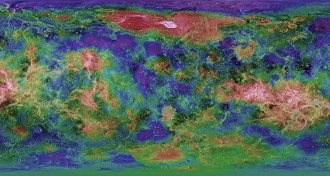 Planetary Science
Planetary ScienceVenus may be home to a new kind of tectonics
Venus’ surface seems to be divided into jostling blocks of crust, defying conventional wisdom about how the surfaces of rocky planets work.
-
 Science & Society
Science & SocietyWhy science still can’t pinpoint a mass shooter in the making
Arguments flare over mass public shootings that remain scientifically mysterious.
By Bruce Bower -
 Ecosystems
Ecosystems50 years ago, invasive species traveled the Suez Canal
Hundreds of Red Sea species used the Suez Canal to migrate to the Mediterranean Sea, leading to the decline of some native species.
By Kyle Plantz